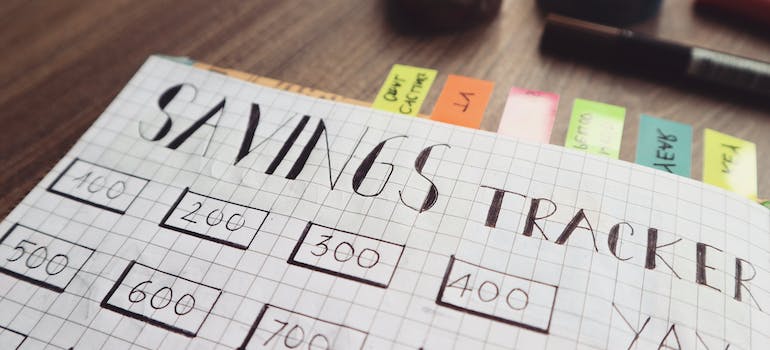Moving to a new home is a significant step, filled with many challenges. Among these, ensuring a successful transition is key. This is where the importance of having backup plans for settling in after your move comes into play. It’s not just about moving your belongings; it’s about adapting to a new environment and overcoming unforeseen hurdles. To ease this transition, having reliable movers by your side is crucial. That’s where Verified Movers steps in. They specialize in helping you find the best movers for any move aspect. With their support, you can focus more on settling into your new home and less on the logistics of the move!
Delays Happen: Be Ready
When you move, it’s crucial to remember that delays can happen. They’re often part of the process. Weather, traffic, or unexpected hiccups can push back your timeline for post-moving tasks. This doesn’t mean panic. Instead, it’s a prompt to be prepared. Think about packing a special ‘first-day’ box. Fill it with essentials like snacks, a change of clothes, and basic tools. It’s like a safety net for the unexpected. Keep important phone numbers handy too. The mover’s contact, a local takeout, or a nearby hotel can be lifelines if you get stranded. Remember, a little foresight goes a long way. Being ready for delays can transform a stressful hiccup into a manageable bump in the road. It’s all about planning and keeping a cool head. This way, even if your schedule shifts, your move won’t lose its stride.

Financial Safety Nets Are Key
Creating financial safety nets is a crucial aspect of planning your move. Unforeseen costs can arise, and being prepared can make all the difference. Here are key steps to build your financial buffer:
- Start Saving Early: Begin setting aside a small portion of your income months before your move. This gradual approach eases the pressure.
- Budget for the Unexpected: Always add a bit extra to your moving budget. This extra can cover surprise expenses.
- Emergency Fund: Aim to have a fund that covers at least two months of living expenses. It’s your financial safety cushion.
- Track Moving Expenses: Keep a close eye on what you spend. This helps avoid overspending and keeps you within budget.
- Research Moving Costs: Get quotes from different moving companies. Compare prices to find the best deal.
- Consider Insurance: Think about getting insurance for your valuables during the move. It’s an added cost, but it brings peace of mind.
Remember, a solid financial plan is your ally. It turns unexpected expenses from major stressors into minor hiccups. Smart financial planning means is one of the ways to reduce and relive stress, not the worry of unforeseen bills.

Temporary Housing Solutions
When your new home isn’t ready on move-in day unpacking and settling after a long distance move isn’t possible. Knowing your temporary housing options is a game changer. Hotels offer a quick solution but can be costly for longer stays. Short-term rentals, like those found on Airbnb, provide a more home-like feel. They often come with kitchens, which can help save on meal costs. Also, you can explore local extended-stay hotels. They offer amenities like laundry services, making longer stays comfortable.
Another option is seeking out furnished apartments. These can be more budget-friendly for stays of a month or longer. Some even offer flexible lease terms. Always check for reviews and safety features of any temporary housing. Doing so ensures your stay is both comfortable and secure. Remember, temporary housing is just a stepping stone. It’s part of the adventure of moving to a new place. With the right choice, you can enjoy this transitional phase without stress.
Familiarize with Local Services
When it comes to backup plans for settling in after your move, getting to know local services is very important. Start by locating the nearest hospital and pharmacy. It’s essential for health emergencies and regular medical needs. Next, find your closest grocery store. Knowing where to buy your daily essentials is crucial. Also, understand the public transportation system. This can be your lifeline to exploring the city and commuting. Maps and local websites are great resources for this information. Familiarizing yourself with these services reduces stress significantly. It makes your first few weeks easier and more comfortable. Plus, it helps you feel more connected to your new community. Remember, knowledge is power, especially when adapting to a new environment.
Keep Important Documents Accessible
Keeping important documents within reach is a smart move when relocating. Have your contracts, insurance papers, and personal IDs handy. You’ll often need these documents for setting up utilities, confirming your identity, or dealing with legal matters. Organize them in a clearly labeled folder for easy access. It’s also wise to keep digital copies as a backup. This way, you’re ready for any bureaucratic tasks right from the start. Having these essentials at your fingertips can make a world of difference. It eases the transition and lets you focus on enjoying your new home. Remember, being organized is key to a stress-free move.

Be Mentally Prepared for Change
Being mentally prepared for change is just as important as packing boxes. Keep your mind open and your expectations flexible. Settling into a new place is a journey, not a race. It’s perfectly fine if everything doesn’t slot into place right away. Give yourself time to adapt to your new environment, and make your new place feel like home. Remember, each step, big or small, is progress. This mindset can make your move less stressful and more of an adventure. Embracing change with a positive attitude is key to enjoying your new start.
Having Backup Plans for Settling in After Your Move Is a Must!
These backup plans for settling in after your move provide a safety net for the unexpected and ease the transition into your new home. By being prepared, you can handle delays, financial surprises, and other challenges with confidence. These plans are not just about being ready for problems; they’re about ensuring peace of mind. Start your move with preparedness and positivity. With the right backup plans in place, you can look forward to a successful and stress-free new beginning!




